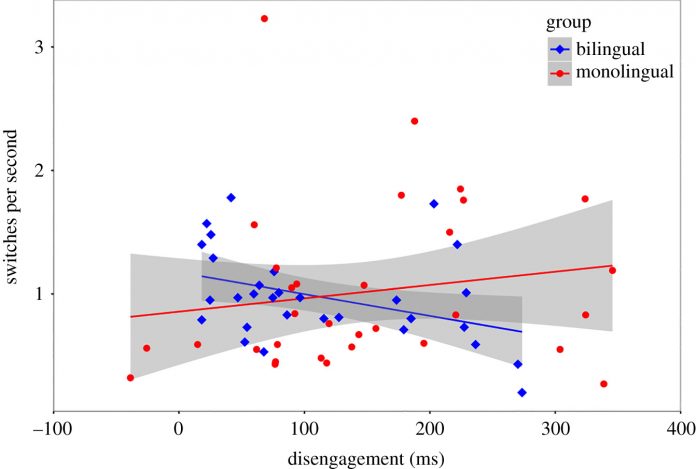Babies in bilingual homes adapt by switching attention more easily and more often, according to a study from Anglia Ruskin University, UK.
Two groups of 51 babies, aged 7-9 months, were exposed to four cognitive tests involving looking at moving shapes on a screen while their eye movements were tracked and recorded. One group of babies came from bilingual homes while the others were monolingual – but all were preverbal.
Dean D’Souza and colleagues found that babies from bilingual homes switched their attention from one picture to another faster and more often than babies from monolingual homes. This suggests that babies exposed to more than one language adapt by focussing more on exploring novel stimuli, while babies from monolingual homes focus more on consolidating familiar stimuli.
This study adds to the ongoing controversy over the so-called ‘bilingual advantage’, whereby some researchers – but not others – have found bilingual speakers have improved cognitive skills.
One leading theory proposes that production of two languages requires better inhibitory control in order to supress one language while using the other. However, D’Souza found no support for better inhibitory control, which is perhaps unsurprising since the babies were not producing any language. But they did find increased attention switching, showing that exposure to the two languages was enough to promote cognitive adaptation without actually producing language.
The authors wisely point out that this is not so much an advantage as a difference that could have both positive and negative consequences, depending on the context. Future research might explore, for example, whether this is related to poorer metacognition in adult bilingual speakers – or better mental health in elderly bilingual speakers (see article below).
REFERENCE
■ D’Souza, D., Brady, D., Haensal, J. X. and D’Souza, H. (2020) Is mere exposure enough? The effects of bilingual environments on infant cognitive development R. Soc. open sci.7180191http://doi.org/10.1098/ rsos.180191





